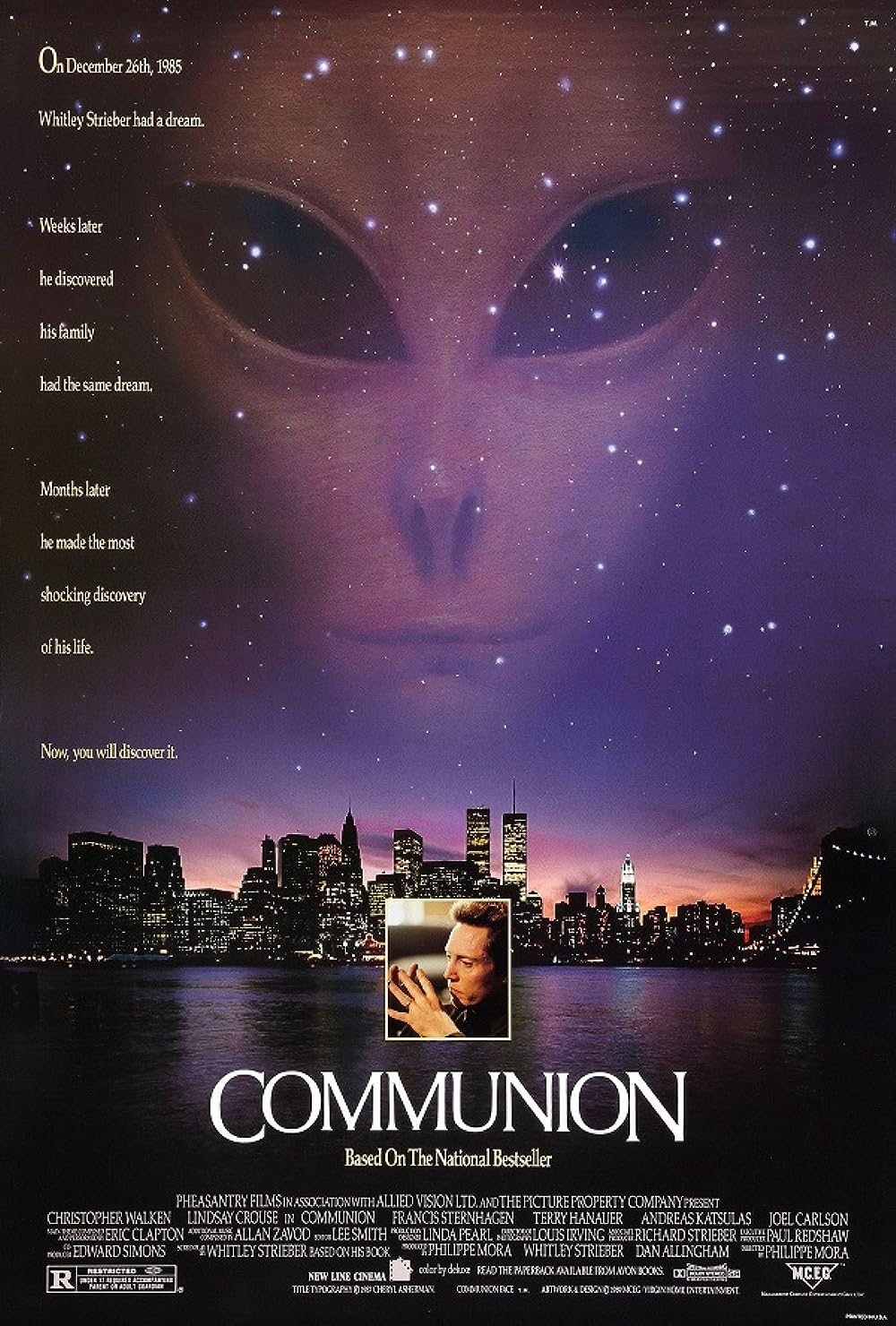
We got to talking about unidentified flying objects. People claimed they experienced UFOs in the Gimli area, and elsewhere in the province. I'll let God figure out what actually happened. But this provided a solution to a traditional problem for me: what to recommend when someone asks what movie to watch.
It's funny how, at least from my perspective, movies come in groups, two or three.
Fire in the Sky (1993) and
Communion (1989) are two films about UFO experiences. I had rented both of these films in the
past. I thought that it would be nice to watch these films one after the other. So that's what
we did.
Both of these films are said to be based on true stories. I can't stress enough that this
is what gives the films their punch.
As I pointed out when we watched one of the movies, there are layers of truth here.
You are experiencing a film made by filmmakers based on a story that was related about things
that were experienced, which may or may not have been true.
Fire in the Sky takes place in small town Arkansas during the 1970s.
I was struck by what a good film Fire in the Sky is. I was struck by how good it was
without the focus being on the UFO, but on people.
The main character is played by Robert Patrick, best known as the scary robot in Terminator 2.
He has a natural serious look on his face. If he was telling a joke about why the chicken
crossed the road he would still have that intense look on his face. The later scenes in the UFO
are at the same time the climax of the film, nicely realised, and these scenes kind of spoil the
film. One gets a sense of not only scary and alien, but distant and impossible
to escape. On the other hand, the filmmakers portrayed things that were not alleged to have happened.

Communion, in contrast, involves bourgeouis urban sophisticates in New York state. The film, starring Christopher Walken, is tense, gripping for the first two thirds or so. A video monitor is shown, kind of spooky, but they don't seem to do anything with it. Faces in artwork are shown, maybe a little too much. The last part, which ties in with the name of the film is .. weird. No more tension. But the story is what the story is.
Decades ago, while wandering through the University of Winnipeg library, I randomly came across the book written
by the main character. He is an actual person, an author of books for children. I think it's fair to say he is
imaginative. I believe this book was called
Communion. He talked about his family's multiple experiences involving UFOs since he was a child. He makes no
bones about the fact that he is not certain that his experiences happened. Then again, things happened to multiple
people, not just him. I didn't read the book, just a page here, a page there. He mentioned that others
have reported an alien wearing an artificial tie, as he had seen, as if the alien was representing humans.
It must be tough for filmmakers to portray UFO aliens and, worse, the craft. What are you supposed to base it on?
You could always do this yourself, watch these two films in a row at night with people. They're both scary, or
at least tense.
An audio production of the Who Goes There? story.
You should listen to this by .. well, you know the drill. Dark, quiet, uninterrupted, late at night, maybe by yourself. Cold would be atmospheric too.
The story was written more than once over the years. There are actually other audio productions out there, each different, for example including narration. And of course there are the movies ("De Ting", as my horrified Trinidadian friend would say). I get confused by the versions, which year is which.
Mr. Campbell was the editor of Astounding Science Fiction for decades, and a science
fiction award or two was named after him.
Rumored 'The Thing' Remake Based On 'Frozen Hell': A Lost Manuscript May Change Horror History
Newsweek.